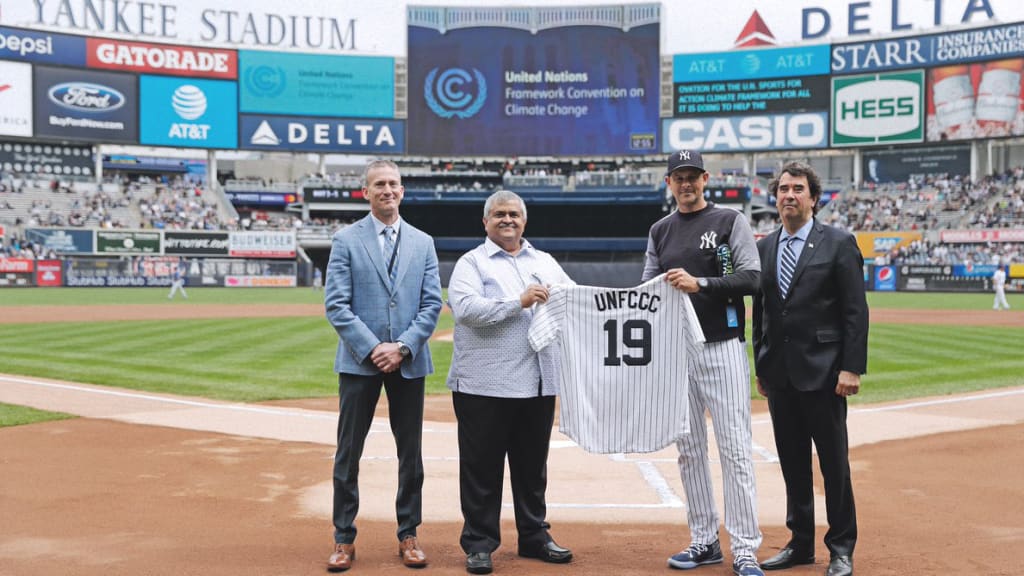
NEW YORK -- The Yankees have been at the forefront of environmental sustainability initiatives among professional sports organizations. The team highlighted those initiatives before Sunday's homestand finale at Yankee Stadium, in recognition of Earth Day on Monday.
Yankees senior vice president of stadium operations Doug Behar and environmental science advisor Dr. Allen Hershkowitz spoke about the energy-saving infrastructure built into Yankee Stadium -- displaying the ballpark's high-efficiency LED lighting -- and the environmentally friendly aspects of the ballpark experience, like reusable tote bags that will be available at stadium gift shops and recyclable cutlery and dishware from the concession stands.
"This is certainly, in our minds, a watershed moment in what we do here in sustainability. We've come a long way," Behar said. "We're constantly looking at what's out there, and we're very fortunate to be in the position to do so."
The team also welcomed United Nations assistant secretary-general Satya Tripathi, the head of the New York office at UN Environment, as a special guest. The Yankees became the first major North American sports team to join the UN Sports for Climate Action Framework earlier this month.
"People come here [to Yankee Stadium] to celebrate and watch excellence in motion. That's what the planet needs, more than ever before," Tripathi said. "The Yankees are possibly one of the best teams in the world in any sport. So when it starts with them, I only hope, with all sincerity, that it inspires every other sport, every other team on the planet."
The Yankees were also the first professional sports team to hire an environmental advisor, appointing Hershkowitz to the newly created role at the end of January.
"The cultural influence of the Yankees is extraordinary," Hershkowitz said. "As a scientist, I can tell you that the single most important thing we can do to advance responsible environmental stewardship is change cultural assumptions and expectations about how we relate to the planet."
Tripathi, Hershkowitz and Behar also took part in an on-field pregame ceremony recognizing the Yankees' environmental initiatives and work with the UN.
As part of those initiatives, the Yankees have also implemented a zero-waste initiative at Yankee Stadium, diverting 85 percent of waste from landfills via composting and recycling.
There's also the community outreach side. For example, the Yankees donate cooked food to Rock and Wrap It Up! after every game, providing about 10,000 meals a year over the last 15 years. They also provide thousands of greenhouse gas-offsetting cook stoves to communities in need in Africa. The cook stoves, which were displayed at the stadium on Sunday, are part of how the team offsets its greenhouse gas emissions.
"The Yankees are among the most environmentally responsible sports organizations in the world -- whether you're talking about carbon management, waste management, water conservation, fan education," Hershkowitz said. "For them to say this matters -- for them to join the Green Sports Alliance years ago, for them to join Sports Sustainability International years ago, and now to be affiliated with the United Nations -- the Yankees have used their platform in an incredibly responsible way."
